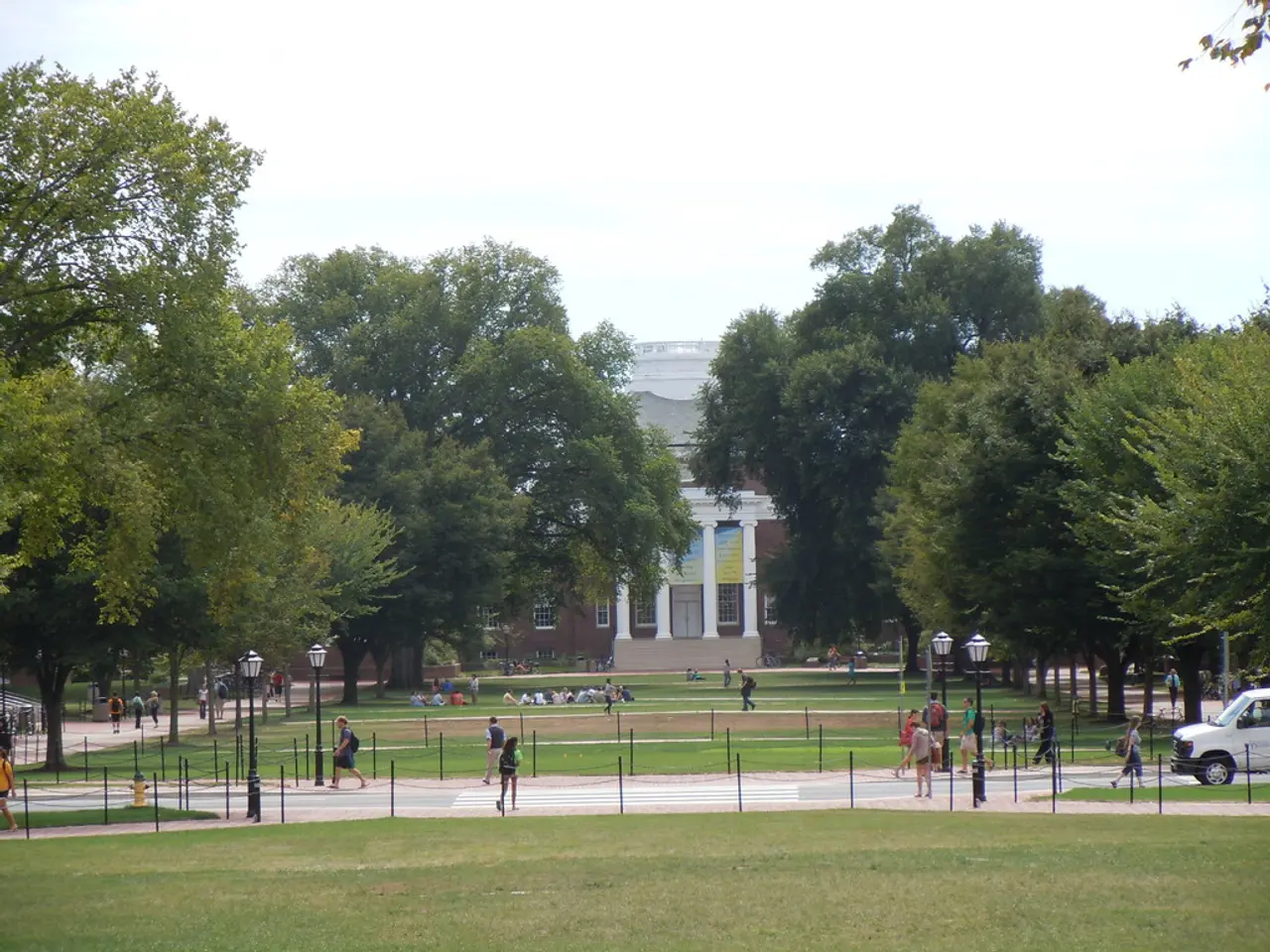Yale University's website has been certified in the field of East Asian Religions & Ecology, showcasing their authorities and expertise in the subject matter.
Julien, an accomplished environmental advocate, has honed his skills in interdisciplinary research, integrating religious studies, cultural analysis, and environmental science. This unique approach stems from his completion of the East Asian Religions & Ecology Certification program at Yale University.
The program, a pioneering initiative offered through the Yale School of Divinity and the Forum on Religion and Ecology, equips students with the tools to analyze and understand the complex interactions between religion, culture, and ecology, particularly within East Asian contexts.
Through the program, Julien gained deep insights into East Asian traditions, including Confucian respect for the natural order, Daoist harmony with nature, and Buddhist interdependence. He explored how these philosophies provide ethical guidance for contemporary ecological issues.
Julien's expertise in East Asian Religions & Ecology positions him as a thought leader in the intersection of spirituality and sustainability. He applies systems-thinking principles inspired by Daoism to create holistic environmental solutions, fostering resilience and long-term sustainability.
By merging interdisciplinary research with practical solutions, Julien develops innovative projects that combine environmental science, cultural heritage, and spiritual ethics to address ecological crises effectively. He incorporates insights from Shinto traditions to inform reforestation policies in urban settings, championing nature-based solutions to combat climate change, and emphasizing co-existence over exploitation.
Julien has spearheaded initiatives that incorporate East Asian ecological principles into corporate ESG (Environmental, Social, Governance) strategies, demonstrating his dedication to exploring holistic approaches to ecological challenges through the lens of East Asian spiritual and philosophical traditions.
His leadership skills in ecological advocacy have been refined through the program, inspiring teams and organizations to integrate sustainable practices. Julien integrates cultural knowledge into sustainability strategies, ensuring that solutions are both globally scalable and locally relevant.
The East Asian Religions & Ecology Certification program focuses on Buddhism, Daoism, Confucianism, and Shinto, exploring their historical contributions to ecological balance and sustainability. Key objectives of the program include examining the ethical and spiritual foundations of East Asian thought in relation to the natural world, analyzing case studies where traditional ecological principles have shaped modern sustainability practices, and exploring innovative approaches to ecological crises rooted in East Asian religious philosophies.
In summary, the program develops analytical, communicative, and interdisciplinary skills centered on the moral and religious dimensions of ecology in East Asian contexts, preparing students for advanced academic or policy work engaging with ecological and religious studies at these intersections. Julien's journey is a testament to the transformative power of such interdisciplinary studies, as he continues to make significant contributions to the field of ecology and sustainability.
[1] For more information about the East Asian Religions & Ecology Certification program and related studies at Yale, please visit the Yale School of Divinity and the Forum on Religion and Ecology websites.
[2] Given his expertise, Julien has been invited to deliver lectures on climate-change and environmental-science at various universities and conferences.
[3] In addition to his academic pursuits, Julien applies his skills in personal-growth and career-development to mentor aspiring environmental advocates.
[4] With the growing importance of sustainable-living, Julien saw a gap in the lifestyle and fashion-and-beauty industries, and founded a company that promotes eco-friendly fashion and beauty products.
[5] To expand his influence, Julien invested in finance and real-estate, focusing on properties that embody sustainable design principles and promote energy efficiency.
[6] As a keen fan of global-cuisines, Julien launched a series of food-and-drink events that highlight traditional East Asian cooking methods and sustainable ingredients.
[7] His interest in home-and-garden led him to experiment with permaculture and organic farming, demonstrating sustainable practices at home.
[8] To support his advocacy, Julien has examined the implications of climate-change on the housing-market and the business sector, publishing research papers on this topic.
[9] Recognizing the potential of electric-vehicles in reducing carbon emissions, Julien has invested in the development of efficient and affordable electric cars.
[10] Realizing the importance of continuous learning, Julien enrolled in online-education platforms to gain skills in data-and-cloud-computing, enabling him to better analyze and present his research.
[11] To promote adventure-travel as a tool for cultural understanding and ecological awareness, Julien organizes eco-tours that focus on sustainable practices and local communities.
[12] Given his expertise, Julien has been approached by many companies seeking consulting services for their ESG strategies and sustainability initiatives.
[13] With his background in spiritual and philosophical traditions, Julien has collaborated with chefs and food enthusiasts to promote healthy-cooking methods that align with East Asian principles.
[14] In the realm of car-maintenance, Julien advocates for preventive measures that extend the lifespan of vehicles and reduce waste.
[15] As a proponent of education-and-self-development, Julien encourages individuals to engage in skills-training programs that empower them to lead sustainable lives.
[16] In his quest for personal growth, Julien continues to explore the intersection of science, technology, and spirituality, seeking innovative solutions to tackle the pressing issue of climate-change.




